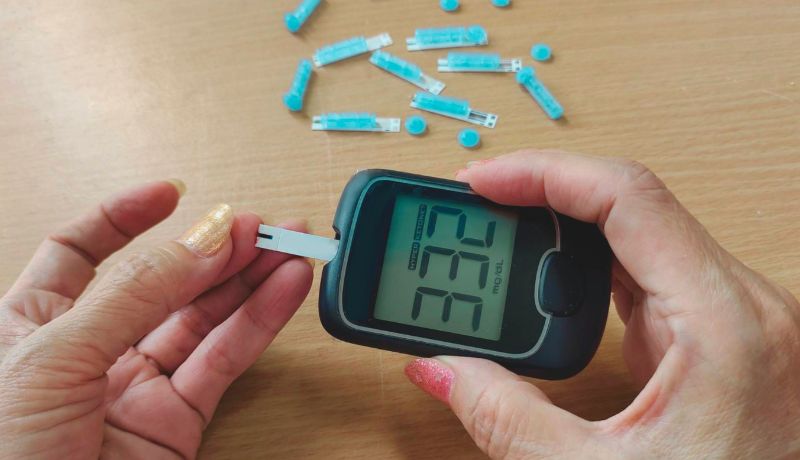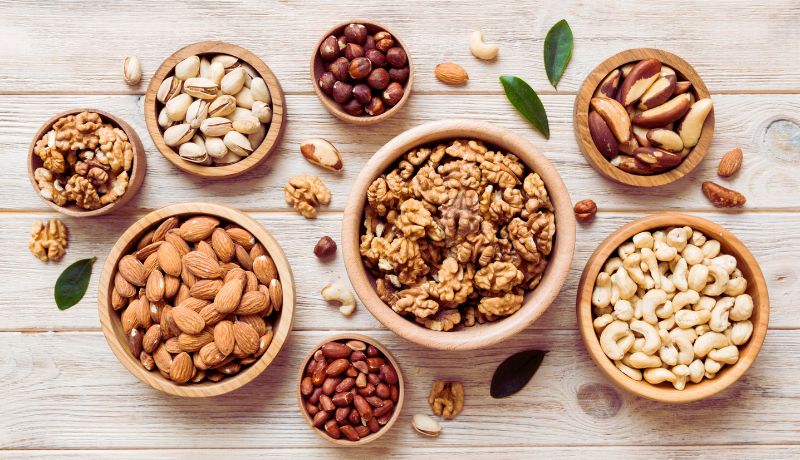
Updated January 2025
If you’ve been searching for effective ways to lose weight, chances are you’ve encountered low-carb diets. Many health experts and fitness enthusiasts tout these diets as a powerful tool for shedding those stubborn pounds.
But what exactly is a low-carb diet, and does it truly work?
What Is a Low-Carb Diet?
A low-carb diet focuses on reducing carbohydrate intake—think grains, bread, pasta, and sugary foods—while emphasizing proteins, healthy fats, and non-starchy vegetables.
It’s not just about cutting carbs but also about replacing them with more nutrient-dense options.
How Does a Low-Carb Diet Help You Lose Weight?
The science behind low-carb diets is both fascinating and widely studied.
Here’s how it works:
1. Blood Sugar and Insulin Regulation
Carbohydrates are broken down into glucose (sugar) during digestion.
When you eat high-carb foods, your blood sugar levels spike, prompting your body to release insulin. Insulin helps transport glucose into cells for energy but also signals your body to store excess glucose as fat.
By reducing your carb intake, you stabilize blood sugar levels and reduce insulin release, which encourages your body to burn stored fat for energy.

2. Ketosis and Fat Burning
When carb intake is sufficiently low, your body may enter a state called ketosis, where it primarily burns fat for fuel instead of glucose. This metabolic shift can significantly boost fat loss over time.
3. Reduced Calorie Intake
Low-carb diets often reduce hunger and cravings, making it easier to consume fewer calories overall.
Benefits Beyond Weight Loss
Low-carb diets offer more than just weight loss.
Research shows that they can:
- Improve blood sugar control, especially for people with type 2 diabetes or insulin resistance.
- Reduce triglycerides and increase HDL (“good”) cholesterol levels.
- Help with mental clarity and focus by reducing blood sugar fluctuations.
Starting with the Basics
While a low-carb diet can be effective, success depends on following it responsibly.
Here are some tips to get started:
1. Avoid Common Pitfalls
- Don’t overdo it on high-protein, processed foods like cold cuts, bacon, and cheese. While these are low in carbs, they can be high in unhealthy fats and calories.
- Avoid thinking of all carbs as “the enemy.” Your body needs carbohydrates from healthy sources, such as vegetables, fruits, and whole grains, for essential nutrients and energy.
2. Make Small Changes
- Swap carb-heavy snacks like pastries and chips for nuts, seeds, or low-carb fruits like berries.
- Opt for smaller portions of starches. For example, have half a cup of quinoa or a small sweet potato instead of a large serving of rice or pasta.
3. Prioritize Healthy Fats
Incorporate good fats like avocado, olive oil, nuts, and seeds into your meals. Healthy fats keep you feeling full longer and help replace the calories you typically get from carbs.
4. Plan Your Meals
- Build your plate with a balance of protein, healthy fats, and low-carb vegetables. Aim for meals like grilled chicken with a side of spinach salad and a drizzle of olive oil.
- Prepare meal plans in advance to avoid grabbing carb-heavy convenience foods when you’re short on time.
5. Stay Hydrated
Drink plenty of water, as low-carb diets can have a diuretic effect. Staying hydrated supports metabolism and overall health.
6. Learn to Read Labels
Familiarize yourself with nutritional labels to identify hidden carbs in processed foods. Look for terms like “added sugars” or “net carbs.”

Tips for Long-Term Success
1. Balance Is Key
While low-carb diets can jumpstart weight loss, extreme restrictions can backfire. Aim for a balanced approach that includes lean proteins, healthy fats, and a variety of nutrient-dense carbs.
2. Track Your Progress
Use apps or food journals to monitor your carb intake and adjust your diet based on how your body responds.
3. Stay Active
Pair your low-carb diet with regular exercise for maximum weight loss and health benefits.
Myth-Busting: Low-Carb Diets Are Not a “Magic Fix”
While low-carb diets are effective for many, they’re not a one-size-fits-all solution. Factors such as genetics, lifestyle, and underlying health conditions can influence how well this approach works for you.
Moreover, overly restrictive low-carb diets may lead to nutrient deficiencies or low energy levels if not carefully planned.
Can You Really Lose Weight on a Low-Carb Diet?
The answer is a resounding yes—but with caveats. A low-carb diet can help you lose weight and improve your health when done correctly.
However, it’s essential to avoid extreme carb restrictions and focus on whole, unprocessed foods.
Remember, the goal is to create a sustainable eating pattern that promotes both weight loss and overall well-being. By balancing low-carb principles with nutrient-rich foods, you can achieve long-term success.
Recent Research Highlights
🅰 A 2023 meta-analysis published in The American Journal of Clinical Nutrition found that low-carb diets led to significantly greater weight loss compared to low-fat diets over 12 months, particularly among individuals with higher insulin resistance.
🅱 A 2024 study in Diabetes Care highlighted that low-carb diets improve glycemic control in people with type 2 diabetes, reducing the need for medication in some cases.

Ready to Take the First Step?
If you’re ready to start your low-carb journey, take it one step at a time.
Begin by swapping out high-carb snacks, planning balanced meals, and incorporating healthy fats. Don’t forget to consult a healthcare professional to ensure this approach aligns with your unique health needs.
Start your transformation today!

Hello Alice,
Low-carb diets can be an effective tool for weight loss, but they are not a magic solution. Their success largely depends on how well they are planned and whether they fit an individual’s lifestyle and health needs.
The scientific backing for low-carb diets is strong, particularly for people with insulin resistance or type 2 diabetes, but extreme versions of the diet can lead to nutrient deficiencies and low energy levels.The key takeaway is that balance matters.
Instead of cutting carbs drastically, a more moderate approach that includes nutrient-dense carbs (like vegetables and whole grains) alongside healthy fats and proteins is more sustainable. It’s also important to remember that diet alone isn’t the answer—exercise, hydration, and overall lifestyle choices play significant roles in long-term success.
I have type 2 diabetes, can I really lose weight with a low carb diet? I have restricted a lot of carbs because of my diabetes and even gone as far as listing all of my food intake to find out all of the nutrients, calories, carbs, etc.
Over the last three or four years, I have successfully got my weight down to 200 only to put it all back on. Then I did it again and got down to 214. I plateaued both times and I mean my weight wouldn’t budge below those marks. What do I have to do to break the 200-pound barrier. Actually, I want to get down to 175.
Thanks,
Mark
Hi Mark,
Thank you for sharing your experience!
First off, congratulations on your dedication to tracking your intake and making progress with your weight loss—it’s no small feat. I understand how frustrating plateaus can be, especially when you’re putting in the effort and not seeing the scale move past a certain point.
Since you have type 2 diabetes and have already been following a low-carb approach, here are a few things that might help break past that 200-pound mark:
1. Evaluate Your Macros & Calories – Even on a low-carb diet, consuming too many calories (or even too few) can impact weight loss. If you haven’t already, consider adjusting your protein and fat intake while keeping carbs low to see if that makes a difference.
2. Try Carb Cycling or Strategic Refeeds – Sometimes, introducing slightly more carbs (from nutrient-dense sources like berries or sweet potatoes) can help reset your metabolism and break through a plateau. You could experiment with this while monitoring your blood sugar levels closely.
3. Increase Physical Activity – If you haven’t already, adding strength training or high-intensity interval training (HIIT) could help boost metabolism and improve insulin sensitivity. Even small changes in workout intensity can make a difference.
4. Manage Stress & Sleep – Chronic stress and poor sleep can raise cortisol levels, which can lead to weight retention, particularly around the midsection. Ensuring good sleep and stress management (like mindfulness or deep breathing exercises) might help.
5. Check for Hidden Factors – Sometimes, factors like medication, hormonal imbalances, or even gut health can influence weight loss. If you haven’t already, you might want to check in with your healthcare provider to rule out any underlying issues.
Getting to 175 is definitely possible! It may just require some fine-tuning of your approach. Keep going, and don’t get discouraged—you’ve already shown that you can lose the weight, so now it’s about making adjustments to push past the plateau.
Let me know if you’d like any more insights or support!
Best,
Alice
I’ve tried a low-carb diet in the past, and I definitely noticed weight loss, especially in the first few weeks. What stood out to me was the reduction in cravings and the way my energy stabilized. That said, I’ve also found it’s crucial to strike a balance and not go too restrictive. It’s easy to overdo protein and processed foods, so planning meals with healthy fats and non-starchy veggies really made a difference for me.
Anyone else find balance a challenge on a low-carb plan?
Thanks for sharing your experience, Zachary!
It’s great to hear that you saw results and felt more energy with a low-carb approach. You make an excellent point about balance—it’s easy to go too restrictive or rely too much on processed low-carb options. Including healthy fats and nutrient-dense veggies is definitely key to making it sustainable.
I’d love to hear from others, too. Have you found it challenging to find the right balance on a low-carb diet? What strategies have worked for you?
Hello Alice,
Umm…CARBS….Yumm! This is so hard to do for me. I started limiting myself to no carbs after 2PM 2 months ago and I feel great. My job keeps me walking and on the go, so most of my meals have to evolve around carbs and liquids. I’m a skinny guy so there is always the misconception that I can eat whatever I want, when that’s not true. I still get sluggish. Even though I don’t need to lose weight I can still eat healthy.
I can totally relate with you Jaywhon. I also cannot totally give up carbs because like you, my full time job also requires a lot of walking so I really need to load up before starting off with work. I do not recommend totally eliminating carbs from your diet, unless you really need to lose weight. Otherwise, you can enjoy carbs but you may want to go for the healthier ones.
This is a great post and is close to my heart as I lost 60 pounds on a low carb diet 2 years ago and have kept it off. Thank you for mentioning the importance of adding the healthy fats. Eating lots of fats is the most important thing. LCHF is a great way for anyone who is in poor health due to being overweight get life back!
Hi Wendy, thanks for confirming that a low carb diet does not only help one lose weight, it also helps to keep those pounds off. While carbs are the number one source of energy for the body, we need to understand that they’re also the biggest contributors to weight gain, which in turn can lead to obesity. And obesity is one of the major factors for poor health as it may lead to a lot of health problems such as diabetes and hypertension.
But the question most people who want to lose weight ask about having a low carb diet for the purpose of dropping those excess pounds is, “What then can I eat in place of carbs?” The good news is that, other than the fact that we can opt for healthy carbs such as fruits and vegetables, a high protein or a high fat diet (healthy fats that is) are also great alternatives.
Thank you for this wonderful article. When I was on my journey on losing 10 pounds in the past, the internet is a great place to find all the information you need, but sometimes that overabundance of information can be overwhelming, confusing and conflicting. I wish I knew your website in the past; it would’ve made my life easier. This article is straight to the point, very easy to understand and follow. Losing weight does not have to be hard if one has the right information in front of them. I will be sharing this article with my friends who are struggling to lose weight. Thanks again for sharing!
You’re right! The internet has all the information people need in order to lose weight. However, you’re gonna have to go through a lot of articles, skim through each of them and have to try every single one of them to see which one is effective.
But you do not have to go through that, even the smallest changes in your eating habits and lifestyle can help you achieve you goals of losing weight.
Thanks for dropping by Hong.
Thanks for the great info! I’ve been been wondering about this low-carb diet for years. I heard people talk about how a low-carb diet can help lose weight but I never really gave it that much thought.
Now I have a better understanding about what it’s all about and I’d be happy to recommend trying this to friends and acquaintances who are having issues with their weight.
Hi Angie, you’re welcome and thanks for dropping a word.
For someone like myself who enjoys eating bread, pasta, rice and noodles, going on a low-carb diet could be the toughest challenge. However, I believe that the best motivation in order to beat this is the determination to stay fit and healthy. After all, health is wealth.
I love carbs and they are so addictive, but you are right! A low carb diet really does work, it is just hard to get started. I know that once I start seeing results, it gets easier and easier to stick to it. Do you find that it is okay, to have a “carb day” once a week to help with the carb cravings? I have not done this yet, but seems I might have an easier time getting started again.
I love carbs too and I can’t survive a day without them. “Carb day” once a week? It depends on what you mean by that. If you mean stuffing yourself with carbs for one whole day once a week and then zero carb for the remaining 6 days, I don’t think that is ideal. What I recommend is having a “once-a-day” meal of healthy carbs because our body needs carbohydrates too as they are the main source of energy.
You’re right, getting started with a low-carb diet is the hard part especially when we are used to having them at least 3 times a day. It just takes a lot of motivation and discipline and like I said, the best way to start is by doing it gradually and replacing our carb snacks with fruits, seeds or nuts.
I like to reduce my carbs in the evenings or rather I eliminate them. I don’t like to eliminate them completely because I like to build a little muscle because I have found it harder to lose weight with age. Do you have any meal ideas you can recommend for someone lowering carbs? Thanks!
Hi Melissa,
I don’t also recommend totally eliminating carbs from our diet because our body needs them in order to function well. Carbohydrates are the main source of energy and as you said they are also essential for building up some muscles. The important thing to consider when taking in carbs is going for the healthy ones such as whole grains, fruits and vegetables. I believe that you can never go wrong with a meal that is rich in fruits and veggies.